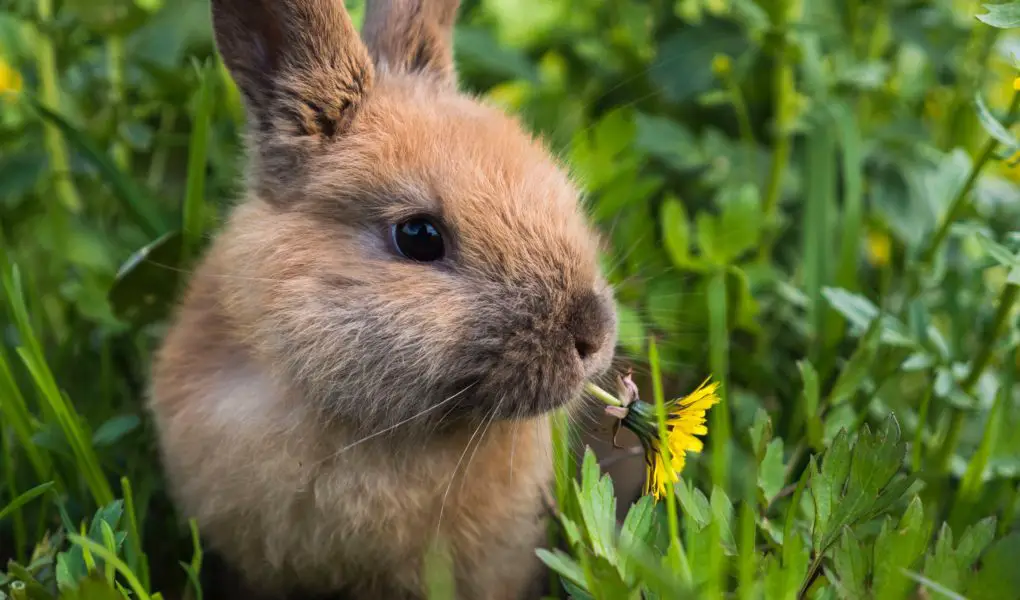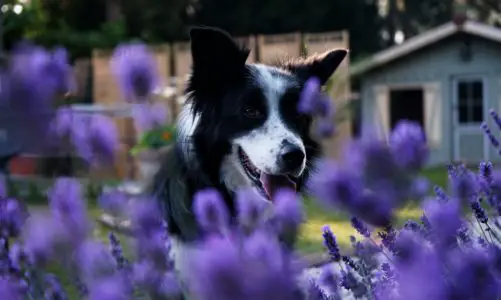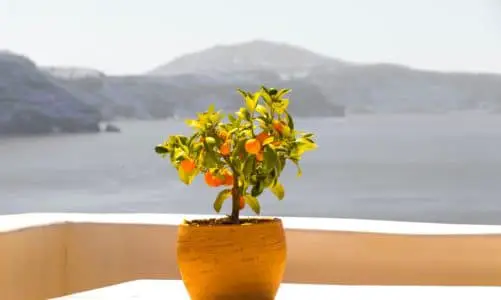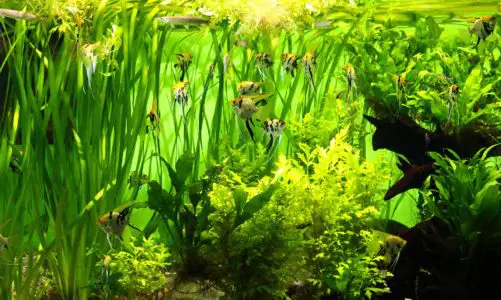Bunnies always enjoy a good nibble. Because their teeth are always growing, they keep it filed down, usually by stripping bark off trees or eating tender twigs and seeds. If they are kept indoors, it means shoes, carpets, cords, and any other household items may be chewed on too. Since rabbits are herbivores, one might be forgiven to think that it is ok for them to eat any houseplant too. The truth is that there are many plants that rabbits should never eat. Knowing which houseplants are toxic to rabbits will help you create a safe environment for your bunny. Unlike cats, rabbits cannot induce vomiting to rid themselves of ingested poisons. You may want to scrutinize the plants and blooms in your garden, potted plants, and even the cut flowers you bring indoors. Rabbits are not very fussy about what they eat so the onus lies with you, the owner to be discerning.
With some plants, not all of its parts are toxic. The toxic parts may include the roots, the bulbs, the flowers, the fruits, or the leaves. A rabbit may still be fine after having nibbled only a part of the plant. Ingesting the whole of a toxic potted plant usually means trouble.
Signs of poisoning
Houseplants that are toxic to rabbits, each contain a different toxic compound. How severe the symptoms are will depend on which toxic compound it is, the bunny’s age and health status. The following symptoms should alert you of possible poisoning.
- Abdominal pain
- Difficult breathing
- Loss of appetite
- Weakness or lethargy
- Diarrhea
- Vomiting
- Seizures
- Irritation in the mouth
- Depression
- A heartbeat that is irregular
- Internal or external bleeding
- Pain
- Death
If your bunny is exhibiting any of the above symptoms, or you a poisonous houseplant was ingested, call a vet immediately. If you cannot reach a vet immediately, contact the ASPCA on their poison control emergency center number for poison-related emergencies: (888) 426-4435
Give their website a visit for more info.
10 houseplants that are toxic to rabbits
Monsteria Deliciosa (Philodendron, Cutleaf)
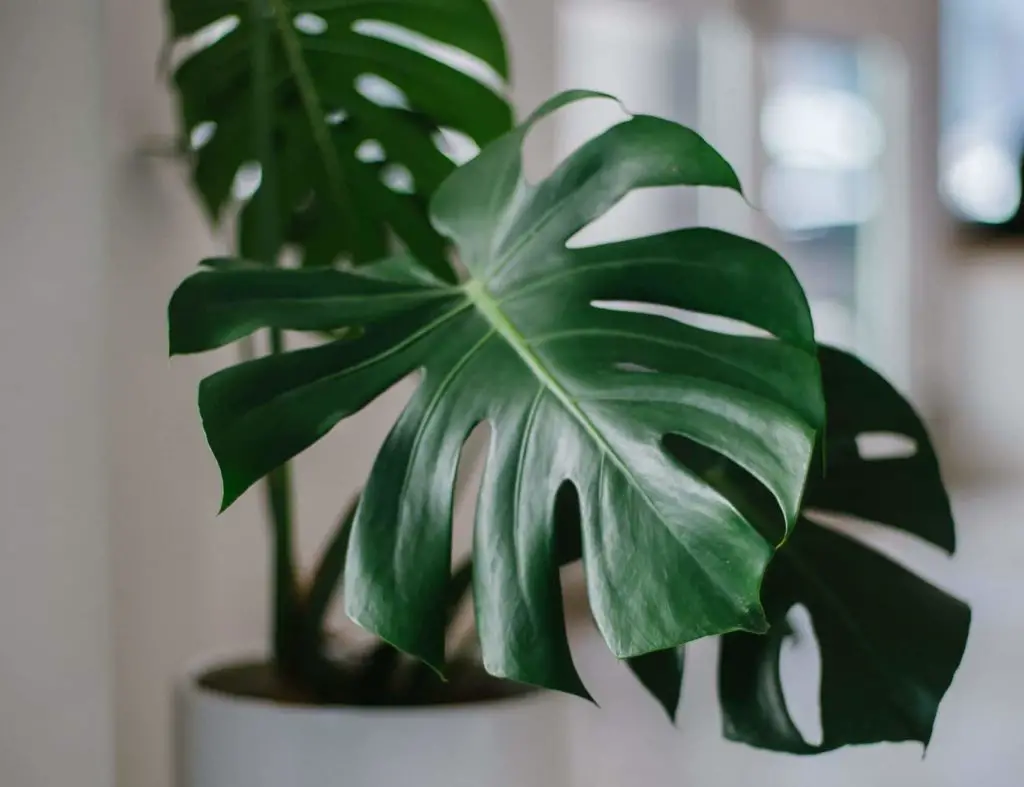
The very popular and trendy Monsteria gives any space a lush tropical vibe. Home decor mags and Instagram pages love to feature this plant. It is also known as Swiss cheese plants or Split leaf philodendrons. Its huge glossy leaves sport easily identifiable hole formations. Unfortunately, this pretty plant contains insoluble calcium oxalates, which are bad for rabbits. In the wild, they will know to stay away, but domesticated bunnies may do otherwise.
Aloe vera (Aloe vera)
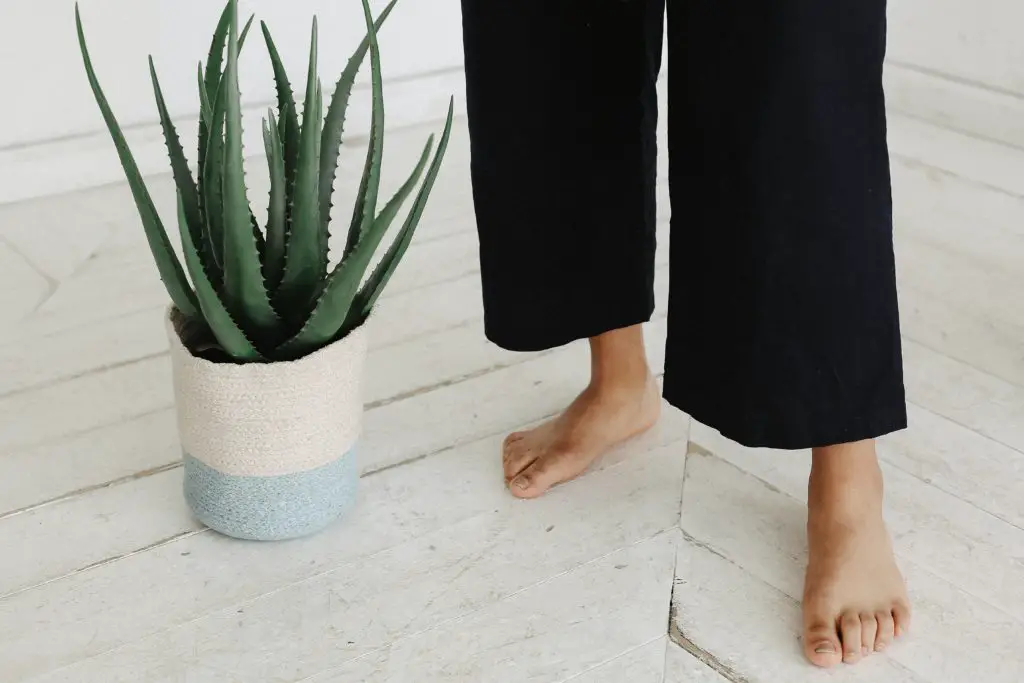
The succulent Aloe vera is a popular houseplant known for its air-purifying and medicinal qualities. It is native to North Africa and also grown in tropical regions of the world. The plant varies in size. Indoor types usually stand about 1 to 2 feet tall, while aloes in the wild are known to grow much larger. They have prickly leaves contain a clear gel that is used for various home remedies, including soothing a sunburn. Aloe is a poisonous plant for bunnies.
Golden pothos (Epipremnum aureum)
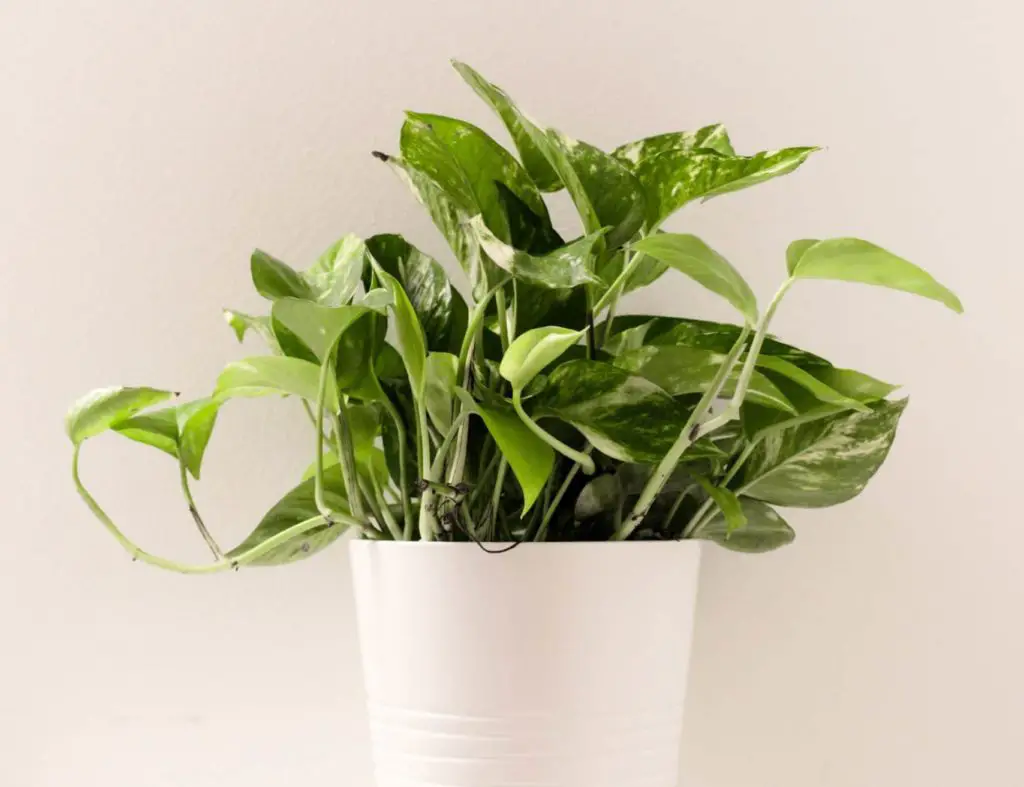
Golden Pothos also is known as Taro Vine or Ivy Arum, is super easy to grow indoors and a top seller. In fact, it can reach up to 10 feet indoors. Pothos makes a stylish addition to any room, is low maintenance, and relatively easy to find everywhere. It is also a great air purifier that removes formaldehyde, benzene, and xylene from the air. Unfortunately, pothos plants are poisonous to rabbits.
Rubber plant, Indian (Ficus elastica decora)
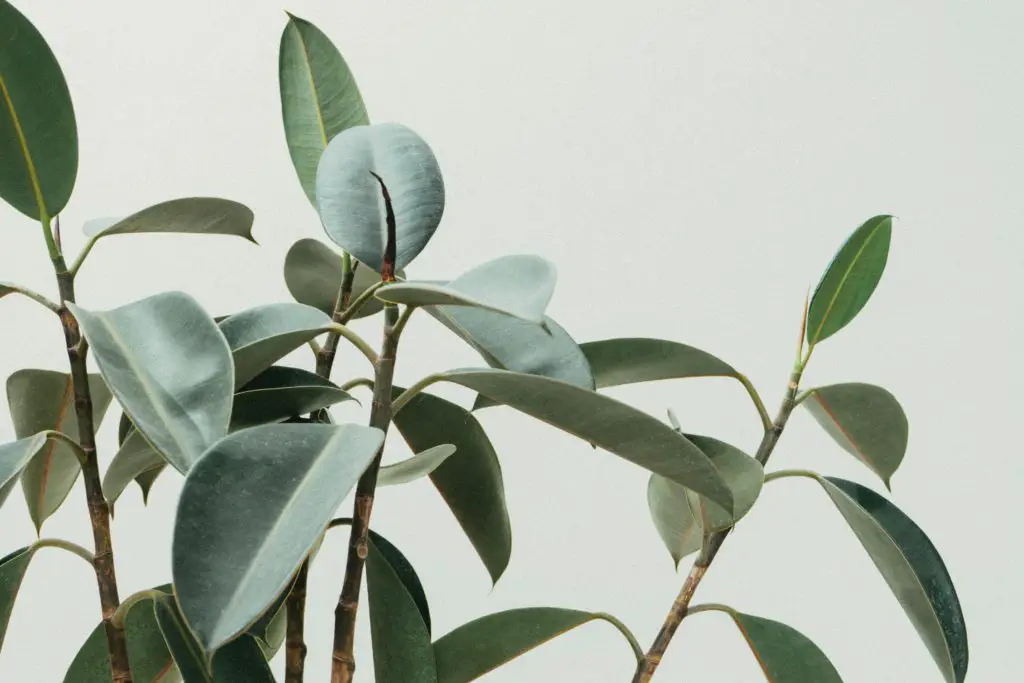
This tropical plant from the fig genus is a popular houseplant. Indoors it may grow up to 10 feet tall. It has lovely waxy leaves that give any indoor space a beautiful feel. Beware thought that rubber plants are not rabbit friendly.
Chrysanthemum
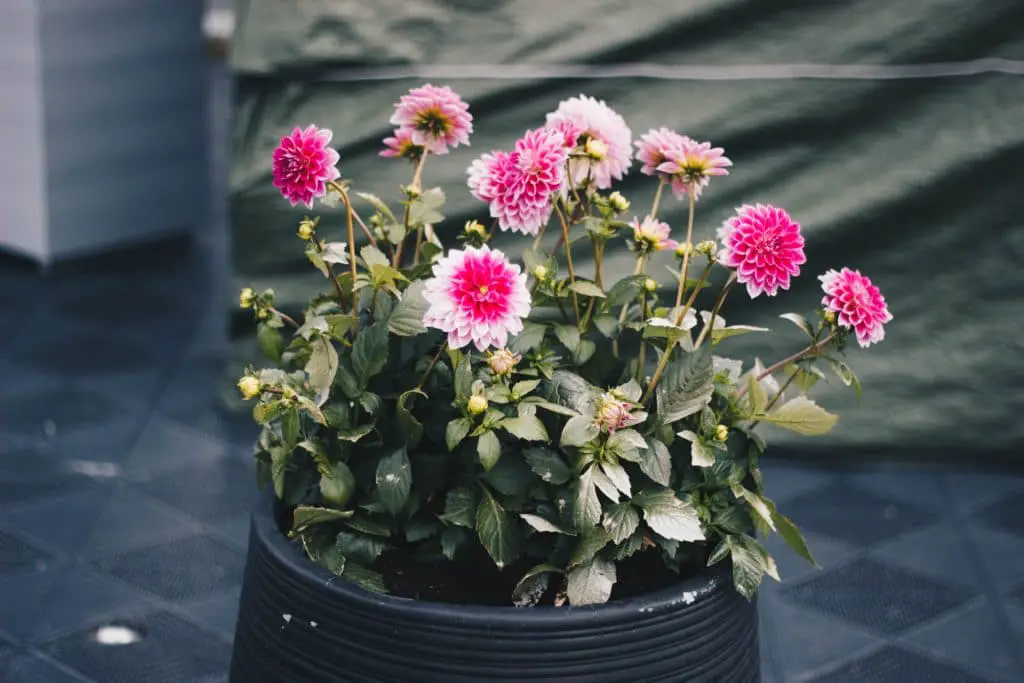
These easy growers are beautiful additions to an outside garden and also make beautiful cut flowers in a vase that will spruce up any space. Unfortunately the leaves and stems of this plant is mildly toxic to rabbits. Generally mums are not appealing to wild rabbits, but it may not be the case with your domesticated bunny.
Asparagus fern (Asparagus sprengeri)
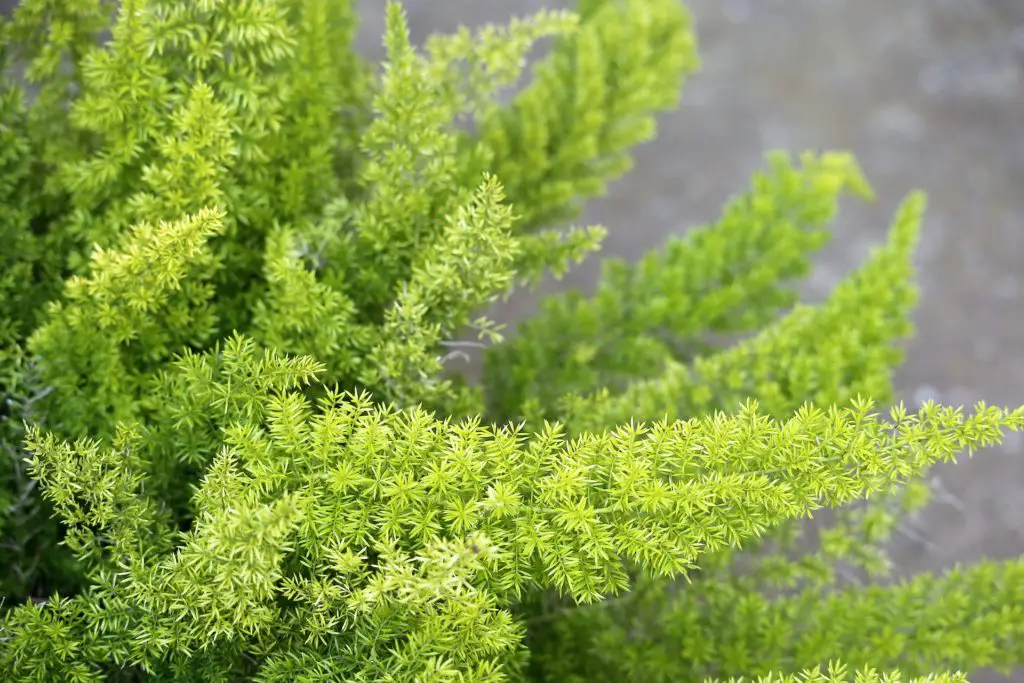
Not a very common houseplant, this attractive fern with its delicate and wispy foliage, can be grown indoors with success. They do well in sunny bathrooms where they thrive in warm and humid conditions. Sadly, some other lovely ferns are also on the no-no list such as Maidenhair fern, California fern, Cloak Fern, Sprengeri Fern, Lace fern and Plumosa fern.
English ivy (Hedera helix)
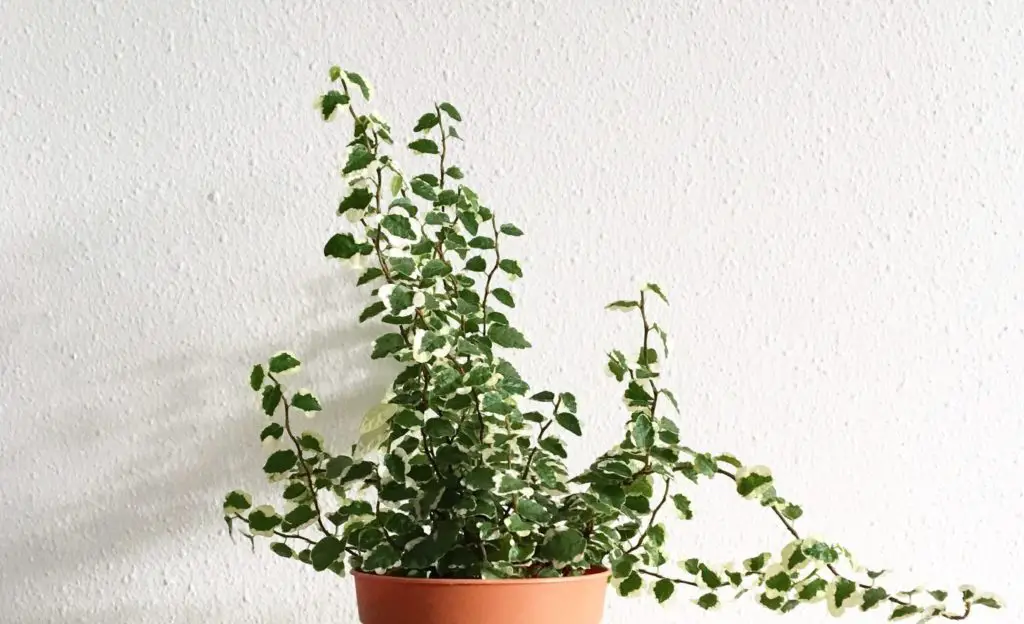
English ivy as well as Boston ivy is also a much loved indoor decorative plant. They are great for hanging anywhere in the house for their air-purifying qualities. Both of these plants are also toxic, not only to rabbits but to cats, dogs as well as infants and toddlers. All the part of the plant is toxic to rabbits. Signs of poisoning may include weakness, diarrhea, seizures, and paralysis in more severe cases.
Daffodils (Narcissus)
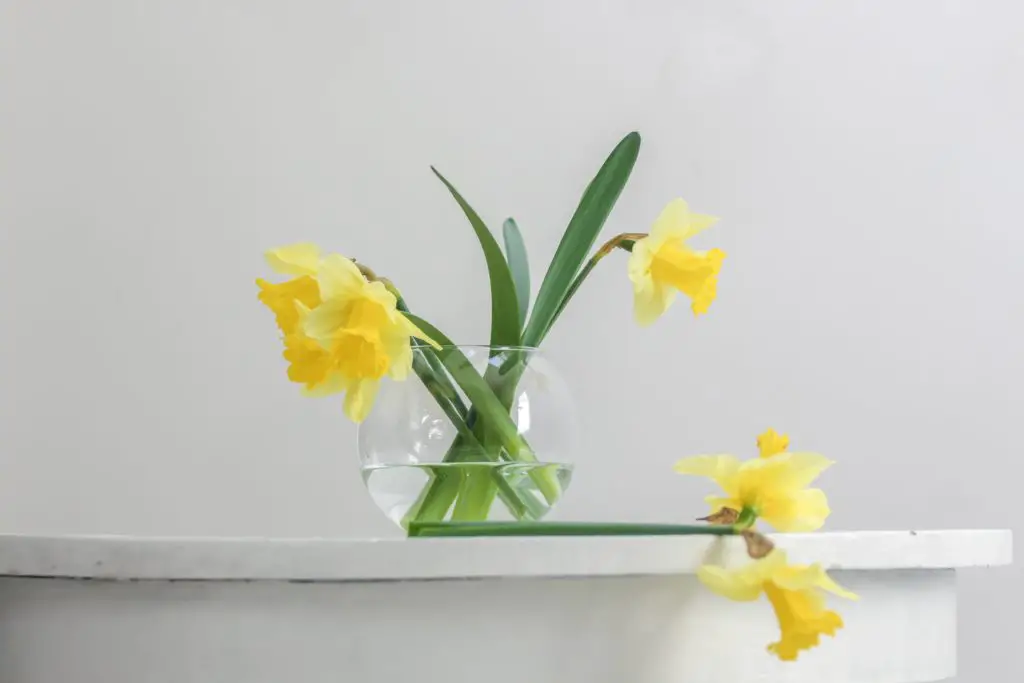
Springtime Daffodils make beautiful cut flowers. These trumpet-shaped blooms with their happy yellow colors can spruce up any home. These flowering bulbs are also known as Paper white and Jonquil. Be aware that consuming the bulb may be fatal for rabbits. Other plants with bulbs that are not rabbit friendly are Tulips, Orchids, and Bluebells. It is better to assume that a plant with a bulb is entirely poisonous to rabbits until you know otherwise.
Hydrangea (Hydrangea macrophylla)
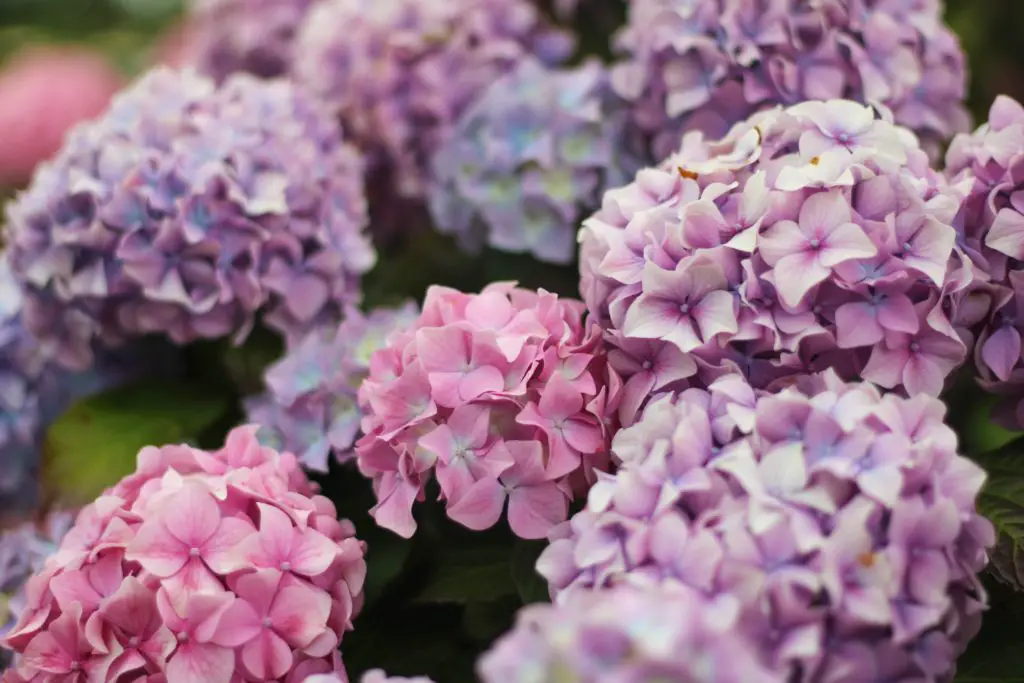
This elegant shrub produces the most beautiful and abundant blooms. These plants are easy to grow in almost any soil and easy to cultivate. They make for beautiful flower decorations too. Unfortunately the all the parts of the plant are poisonous to rabbits. Ingesting some of the flowers, the buds or the leaves can cause gastrointestinal issues and diarrhea.
Peace lily
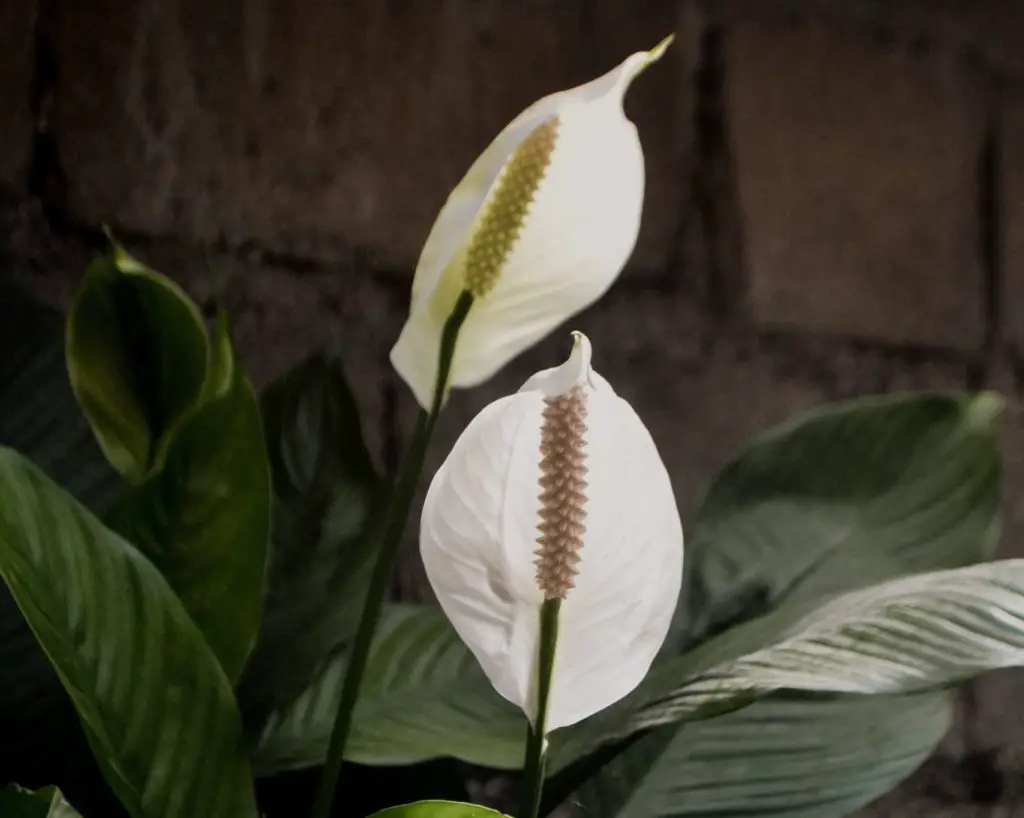
A favorite for many plant lovers for their beautiful white blooms and vibrant green leaves. Peace lilies are easy growers and great air purifiers. They survive almost any indoor situation, such as low light, fluorescent light, shade, or neglect. Both Peace lilies and Lily of the valley are toxic for rabbits. This includes the stems, leaves, and flowers.
Other houseplants that are toxic to rabbits include:
| Ribbon plant (Dracaena sanderiana) | Assume entire plant |
| Sago palm (Cycas) | Entire plant |
| Elephant’s ear (Colocasia esculenta, Philodendron domesticum, Caladium hortulanum) | All parts |
| Rosemary (Rosemarinus) | Leaves |
| Wisteria (Wisteria) | All parts |
| Sweet pea (Lathyrus odoratus) | Stem, fruit & seeds |
| Peony (Paeonia sp.) | All parts |
| Amaryllis (Hippeastrum) | Bulbs |
| Iris (Iris sp.) | Roots and leaves |
| Daisy (Chrysanthemum frutescens) | Assume all parts |
| Tiger lily (Lilium tigrinum) | All the parts |
| Philodendron (Philodendron) | Leaves, stem and sap |
| Ranunculus (Ranunculus) | All parts |
| Poinsettia (Euphorbia pulcherrima) | Sap is fatal, flowers & leaves |
| Anemone (Anemone sp.) | Assume entire plant |
| Azalea (Rhododendron occidentale) | All parts |
| Oleander (Nerium oleander) | Foliage, branches & nectar |
| Holly (Ilex aquifolium, opaca, vomitoria) | Leaves & berries |
Last thoughts on houseplants that are toxic to rabbits is
Do not assume that bunnies will not eat plants that are bad for them. This is especially true for bunnies that are kept indoors as pets. In the wild, the younger rabbits learn from the older ones what not to eat. It is better to assume that all houseplants are potentially poisonous from the start until you have the facts.
The above list of houseplants that are toxic to rabbits is by no means comprehensive. For a more extensive list of toxic plants head on over to The House Rabbit’s Society’s page.
This article was not written by a veterinarian and should not be viewed as advice or diagnostic information.
If you liked this article, you might enjoy these too:
16 Houseplants rabbits can eat.
Watch out! These popular houseplants are unsafe for cats.
40 Popular houseplants that are poisonous to babies.
These houseplants do not attract bugs.
15 Houseplants that repel fleas naturally.
Image credits:
Sgalagae via Unsplash
Daria Shevtsova via Pexels
Scott Webb via Unsplash
Maria Eliz via Unsplash
Nordwood Themes via Unsplash
Lynda Sanchez via Pexels
Mentatdgt via Pexels
Stephanie Ho via Pexels
Daria Shevtsova via Pexels
Kristina Paukshtite via Pexels
Connor Moyle via Unsplash
